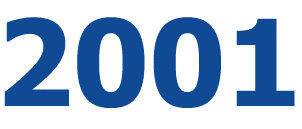Library
Automation
Group

25 Library Systems Seminar
Prague, 6-8 June 2001
Resolution
ELAG 25 years young - Czech Minister of Education calls libraries the pillars of the Information SocietyThe Deputy Minister of Education - Doc.Ing. Josef Prusa, CSc. - called libraries in his opening statement very important actors in the emerging Information Society. He addressed the more than 100 delegates of the 25th ELAG Seminar* on "Integrating Heterogeneous Resources", who have joined ELAG President Paula Goossens (Royal Library Brussels) in Prague (Czech Republic) for 3 days of information exchange.
Workshops, papers and discussions have clearly shown, that the library world has to move fast to the adoption of mainstream standards, such as XML, XSL, Xlink, etc. (the whole family of X-standards), e.g. XML can be used as a carrier for MARC records, but will not replace (yet) the MARC record. ZML may be a way to structure Z39.50 protocols. XMARC and ZML are linking library ICT applications to the ICT mainstream applications.
Much attention exists for open linking and open-URLs, a framework for implementing open - context sensitive - linking, for the further definition of service components of libraries and information providers. Linking everything together is becoming a hot topic.
Linking of primary resources (full-texts) with secondary / reference / context resources is a major requirement now and the library OPAC may be the start of a search for information, but increasingly it is only one of the options available to the user.
The appropriate-copy problem (linking based on access rights, preferences, cost, speed or mode of delivery) is forcing libraries to look at new business models and pre-coordinated relations with owners of information.
Discovery, subject portals, data centers, institutional and personal agents, virtual learning environments and access are the new hypes in a globally distributed digital library landscape.
"Identifying/discovering and categorizing relations are necessary requirements for the formal description that makes navigation possible in the bibliographic universe".Libraries and other collection entities, such as archives and museums, have all to work together and open-linking which is a mean to accomplish this cooperation within the ALM sector.
Digital collections are globally distributed and user comfort, which has not been always the main concern, requires the access to heterogeneous resources via a unified interface and cross database searching.The workshops covered topics directly related with the conference theme, but also with related and important subjects like: automated versus human indexing, long-term archiving (preserving the access to electronic documents), classic principles of librarianship in the light of Internet, as well as FRBR-based automated catalogues.
Johan van Halm johanvanhalm@cs.com, Theo van Veen theo.vanveen@kb.nl and Paula Goossens paula.goossens@kbr.be
* The 2002 ELAG Seminar is planned for Rome (Italy) 17-19 April and will deal with the (expected) promises of the applications of the semantic web: "Semantic Web and Libraries".ELAG = European Library Automation Group
Last updated Thu Jan 31 18:11:38 CET 2002